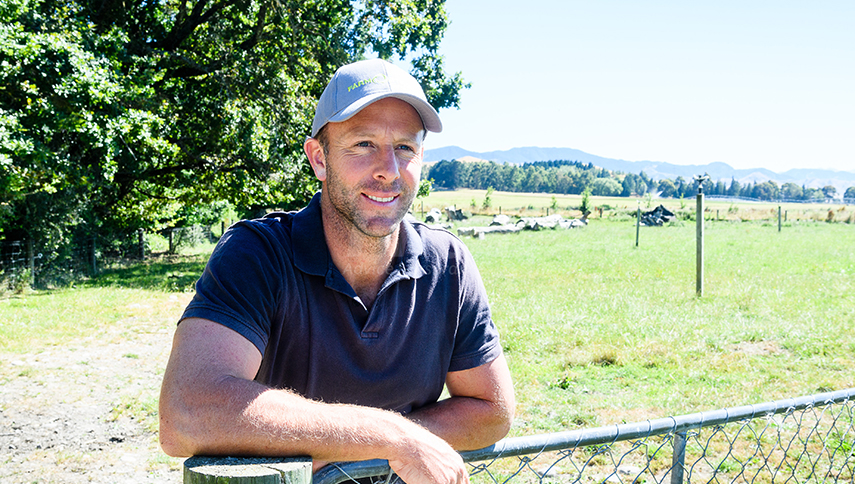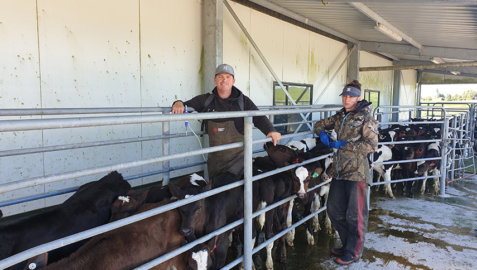
Managing fatigue
Module Overview
There are only so many hours in a day, so when life gets really busy on farm having a strategy to manage fatigue is vital.
Burnout and fatigue are your body letting you know that it can no longer cope with the demands you are placing on it. When your body is under stress from being too busy or feeling pressured, it releases stress hormones that make it hard to relax, perform at your best or sleep well at night.
The key is to treat yourself as your farm’s number one asset and build rest and recovery time into your work schedule. No one can go 110% on an ongoing basis without a break. It’s just not how we’re built. All top sports teams build in recovery time. That’s why ‘downtime’ and microbreaks to recharge the batteries are essential even during peak season.
Burnout doesn’t happen overnight; it creeps up like a slow leak on a tractor tyre. However, our body and mind give out warning signs, so awareness is the key. If you often work very long hours without a break and struggle to get off farm, you might notice yourself getting irritated and frustrated over little things or having trouble making decisions or waking up at night worried about the next day.
What can you do about it? Here are a few thoughts from farmers.
Eat well, share the load
Abbi Ayre and her husband Frikkie work on a 900-cow dairy farm in North Canterbury. “This year I actually sat down and made a meal plan for the whole of calving, which is something I picked up from another lady at an event. It definitely made cooking meals a lot easier and if you eat well, you just have more energy.”
“The other thing is to share the load and remember that you are not alone. Get out and talk to somebody, whether it’s a dinner group or a b.y.o fish and chip night with neighbours. We often just head to the Farm Source store to have a break and grab a coffee and chat with other people coming in for farm supplies.”
Recognise The Signs
Hawkes Bay farmer James Pharazyn says: “The first thing is to actually realise that you are fatigued and understand that everyone suffers from fatigue from time to time. If you’re coming home grumpy, identify that and tell yourself ‘hey, maybe I just need to sit down and rest up a bit.’ A lot of farmers will just keep going but sometimes your body just needs a rest. So, take a short break, play with the kids or go into town and watch the local footy team, but most of all just rest. Sometimes it is just sitting and watching the rugby on a Friday night.”
Discuss it
Angela and Steve Reed employ a team of four on their 830-cow farm near Darfield. Angela says: “It’s important to ask people how they’re feeling, to look out for signs of fatigue and help them understand that it’s ok to talk about these things. Everyone has times when they feel overwhelmed. It’s nothing to feel afraid of. The important thing is to ask for help, if you need it. We’ve started having those conversations and people are being far more open.”
Plan and Prioritise
Cambridge dairy farmer Marc Gascoigne says: “Planning is the key. It’s important to have good systems and routines in place at busy times like calving so everyone knows what’s happening. Delegating and trusting stuff is a big one too. Make use of people like farm advisors. It’s such a cooperative industry. A lot of people are only too happy to share their experience.”
“At calving time I used to get stressed and not sleep very well. My mind would be churning. Now I keep a piece of paper and a pen by the bed, write down the jobs I need to do and tell my brain to deal with it in the morning. That helps me get to sleep. The main thing I’ve learnt about staying well on the farm is before you can look after your family, your farm and your animals, you’ve got to look after yourself. If you’re feeling fatigued and not in the right head space, you won’t be able to look after what’s really important.”
Prevent injury
Waiau dairy farmer Duncan Rutherford says: “It’s definitely unsafe for people to be operating gear when they are fatigued. We monitor our staff closely to see what tasks they can perform and how tired they are.”
“Breaks are essential to keep people fresh and on top of their game. We’re lucky because we’re large enough to have a decent staff roster so people can get their breaks. But it’s also about running an efficient farming system so people aren’t out there working all hours of the day.”
Staff also get a chance to unwind. “We always have drinks on a Friday night and encourage people to get off farm and play sport. We don’t see it as downtime, we encourage these guys to get out there and have other interests.”
Invest in Yourself
Former sharemilker of the year Siobhan O’Malley, says: “I think farmers are classic at looking after their pasture and their buildings and machinery, but they just work themselves into the ground. Burnout is a real thing, so in order to be sustainable as a business you actually have to look after yourself.”
Let’s leave the last word to Farmstrong ambassador Sam Whitelock.
Time to Think
“Sport has really taught me the value of mini-breaks to stay alert and fresh. It can be as simple as taking that five or ten minutes each day to step away from what I’m doing so that when I get back into things, I’m making good decisions, not feeling fatigued and making poor ones.


